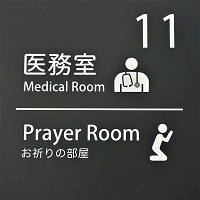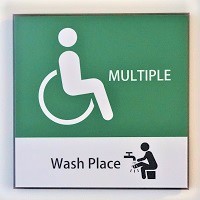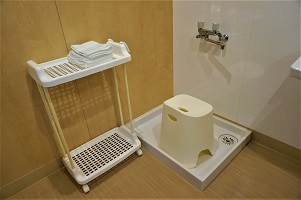Based on its Management Philosophy that we contribute to the world by fighting disease and improving health with advanced technology, Nihon Kohden Group strives to contribute to the world through our business activities.
In the Nihon Kohden Charter of Conduct, which sets forth the standards of behavior to be observed by the Company and its executives and employees, Nihon Kohden states that the Company has respect for human rights at all times. The Nihon Kohden Code of Ethics and Conduct provides specific guidelines for actions to be taken to ensure respect for human rights.
In July 2015, the Company signed the United Nations (UN) Global Compact, aiming to remain a company trusted by society and to contribute to the creation of a sustainable society through corporate activities in accordance with the Ten Principles of the UN Global Compact in the four areas of human rights, labor, the environment, and anti-corruption.
With the globalization of corporate activities in recent years, public interest in corporate human rights initiatives has been growing. As it is extremely important for Nihon Kohden to respect the human rights of its stakeholders, we established the Nihon Kohden Group Human Rights Policy in December 2020. By following the Policy and promoting initiatives to respect human rights, we will contribute to the realization of a sustainable society.
Nihon Kohden Group Human Rights Policy
- We respect international standards related to human rights such as the International Bill of Human Rights and the ILO Declaration on Fundamental Principles and Rights at Work. We support the Ten Principles of the UN Global Compact as one of the signatories of it.
- We respect human rights of all people and do not engage in unfair discrimination or harassment, and pledge not to infringe the personality and dignity of individuals in all aspects of our business activities.
- We ensure a safe and comfortable working environment, minimum wages, responsible labor practices including appropriate control of working hours, and shall respect freedom of association and the right to collective bargaining.
- We pledge not to engage in forced labor, child labor, nor any form of modern slavery including human trafficking.
- This Policy will apply to all executive officers and employees of the Nihon Kohden Group. We strive to encourage all business partners including our supply chain to promote respect for human rights.
As children are socially vulnerable and their rights are easily violated, special protection and care must be prepared for them. It is important that the entire society supports them by recognizing that they have the same rights as adults so that they can expand their future possibilities and grow up healthy.
In support of the UN and ILO conventions~{*} on children’s rights, Nihon Kohden respects the rights of children by not allowing child labor. The Nihon Kohden Group Human Rights Policy defines our basic approach to respecting the human rights of all people, including children. The Nihon Kohden Sustainable Procurement Standards explicitly state that we pledge not to engage in child labor, and we are working to prevent the labor of anyone under the minimum working age throughout our value chain, including our business partners.
In addition to supporting the Children’s Rights and Business Principles (CRBP), Nihon Kohden provides products and services that contribute to the protection of children’s rights and ensure their safety through its business activities. To protect the right to life under the Convention on the Rights of the Child, we have developed and provided electrodes and sensors that are gentle enough for the delicate skin of low-birthweight infants to support their health and growth.
We will continue our efforts to protect children’s rights by providing electrodes with friendly designs that reduce the anxiety of children suffering from illness and by promoting the adoption of our resuscitation monitor for neonates to reduce the mortality rate and incidence of serious sequela in newborn babies.
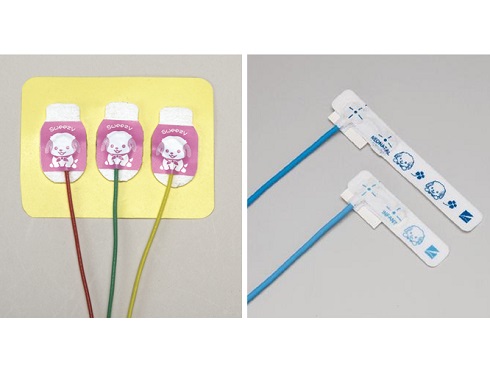
Vitrode N, Disposable Electrode
The TL-273T/274T, Disposable SpO2 probe
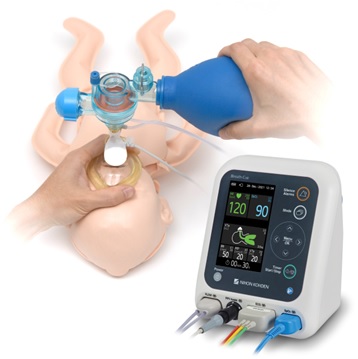
The NRM-1300
Resuscitation monitor for neonate, BreathCue
Nihon Kohden has established a human rights due diligence structure to identify, prevent, and mitigate negative impacts on human rights.
In FY2022, based on the results of a questionnaire survey about the environment, human rights, quality, and governance conducted at Nihon Kohden Group companies in Japan and overseas, as well as at our suppliers, we evaluated human rights risks and identified key human rights issues, taking into account their impact on our business.
In FY2023, based on the questionnaire results, we conducted additional fact-finding surveys and interviews with suppliers identified as having high human rights risks. Through these efforts, we confirmed future measures and proposed strategies to mitigate these risks. Additionally, we established a human rights consultation hotline for our suppliers and customers to receive consultation on human rights issues in the supply chain. Furthermore, we have developed a roadmap for the next three years and set up key performance indicators (KPIs) to guide our efforts. In FY2024, the scope of our supplier questionnaire was expanded from our key suppliers* to all suppliers of domestic and overseas Group companies excluding some overseas subsidiaries. We will continue to foster understanding of Nihon Kohden’s commitment to respect for human rights and promote sustainability efforts in cooperation with our supply chain.
* Suppliers of orders with large purchase amounts, suppliers who provide parts for major and strategic models, and suppliers who provide non-substitutable parts.
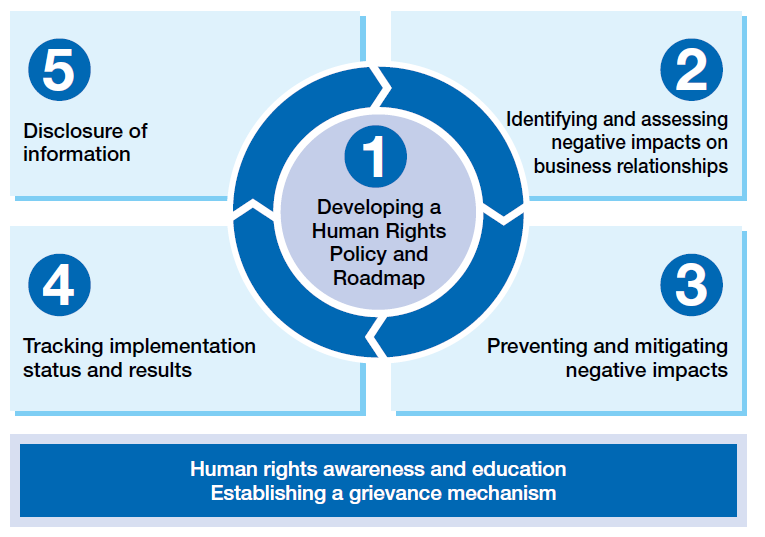
- 拡大
- Overview of Our Human Rights Due Diligence
In promoting sustainability initiatives through its business activities, Nihon Kohden closely engages with all stakeholders, including customers, shareholders and investors, business partners, local communities, and employees. Therefore, a wide range of human rights risk issues can be anticipated, such as discrimination and harassment based on race or gender, excessive working hours, child labor, leakage of personal information, and environmental pollution.
To address these risks, the Company conducts an impact assessment of human rights issues. We focused on approx. 30 human rights issues for impact assessment based on the United Nations Global Compact, the ILO Declaration on Fundamental Principles and Rights at Work, the Stakeholder Engagement Program of the Caux Round Table Japan Committee, and the Handbook for Management that Respects Human Rights formulated by the Japan Business Federation (KEIDANREN). In the FY2022, we evaluated these 30 human rights issues by stakeholder on two axes, severity*1 and likelihood of occurrence*2, based on the results of past questionnaire surveys.
*1 Severity: Evaluates the extent of the impact of a human rights risk when it occurs, and the time and cost required to remediate the risk after it occurs.
*2 Likelihood of occurrence: Evaluates the likelihood that a human rights risk will occur.
As a result of the evaluation of the impact of approx. 30 human rights issues, we identified “Excessive and unreasonable working hours” as well as “Sexual harassment, power harassment, and harassment related to pregnancy, childcare, and nursing care, etc.” as the Group’s key human rights issues. We will regularly reevaluate these critical key human rights issues to prevent or mitigate negative impacts.
We also recognize that issues not identified as key human rights concerns still require ongoing monitoring.
Furthermore, we have assessed the impact of human rights issues on stakeholders such as Customers/Patients, Local communities/Society, and Suppliers/Partners, and have identified key human rights issues specific to each group.
Identified human rights risks
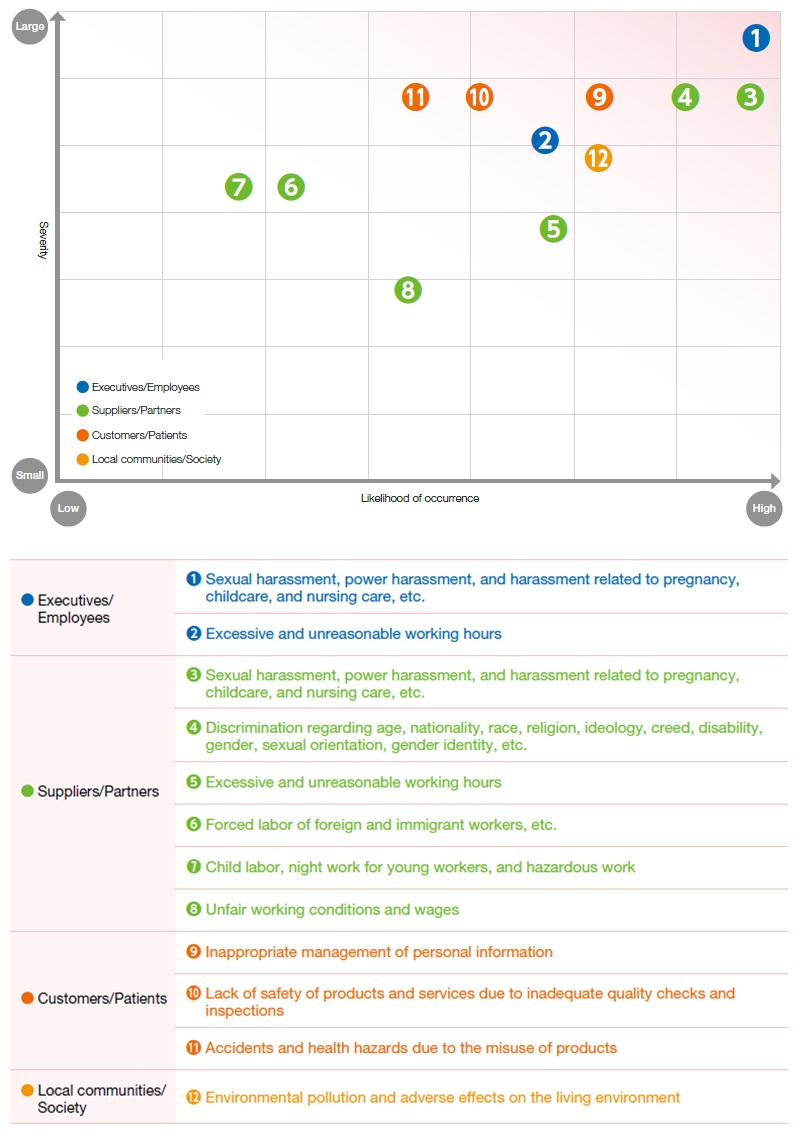
At domestic and overseas Group companies, we have promoted risk reduction measures concerning “Excessive and unreasonable working hours” as well as “Sexual harassment, power harassment, and harassment related to pregnancy, childcare, and nursing care, etc.” which have been identified as key human rights issues. We have conducted additional fact-finding surveys and interviews for suppliers identified as having high risks to confirm future measures and proposed strategies to mitigate the risks.
|
Risk |
Measure |
|
Excessive and unreasonable working hours |
To reduce excessive and unreasonable working hours, such as long working hours and consecutive working days without adequate rest, we started full-scale implementation of the Flextime System and Teleworking System in January 2023 to promote flexible work arrangements. In addition, to improve workforce productivity, annual overtime quotas are set for all departments, and measures are implemented throughout the year to manage and reduce overtime work. We mitigate the risk of long working hours by setting individual and monthly overtime quotas with the attendance management system, monitoring monthly overtime status, and sending alert e-mails when overtime quotas are exceeded. |
|
Sexual harassment, power harassment, harassment related to pregnancy, childcare, and nursing care, etc. |
In addition to providing harassment education through e-learning for all executives and employees, we conduct annual training for newly appointed managers on how to appropriately handle harassment reports and consultations. By continuing these training programs, we aim to reduce the risk of harassment. |
In accordance with the Nihon Kohden Group Human Rights Policy, we are working to prevent all forms of discrimination and harassment.
In FY2024, no human rights violations or harassment leading to disciplinary dismissal from employment occurred.
Nihon Kohden’s human rights initiatives are discussed by the Sustainability Promotion Committee, which is chaired by the president, and the results of the discussions are reported to the Board of Directors. The Corporate Strategy Division and the Human Resources Department play a central role in the implementation of human rights initiatives within the Company.
|
Deliberative body |
Sustainability Promotion Committee (Key human rights-related matters discussed by the Committee are submitted to and reported to the Board of Directors in accordance with the Standards for Procedures for Requesting Deliberations and Making Decisions.) |
|
Secretariat |
Corporate Strategy Division, Human Resources Department |
Nihon Kohden has been conducting e-learning programs for all executives and employees to prevent harassment and ensure compliance with labor-related laws and regulations. In FY2024, the numbers of executives and employees who participated in harassment education and in human rights training were 4,211 and 4,213, respectively. Through these training programs, we aim to promote understanding of human rights risks and human rights policies, deepen awareness of sexual minorities such as LGBTQ individuals, and foster a workplace culture that supports the elimination of discrimination based on gender identity and sexual orientation.
We also strive to prevent human rights violations through training for newly appointed managers that includes sessions on harassment prevention and procedures for responding to harassment reports and consultations.
Nihon Kohden is committed to fostering a deeper understanding of diverse identities, including sexual orientation, gender identity, and gender expression. We are also committed to eliminating prejudice and discrimination against LGBTQ individuals and other social minorities. Through these initiatives, we aim to create a comfortable and fulfilling work environment where diversity is respected, and all employees have the opportunity to thrive.
Aiming to create an environment in which anyone can save a life by using an AED, Nihon Kohden has developed AEDs that can be used by people with hearing impairment or deafness, and people whose native language is not Japanese.
We have obtained the Ear Mark certification from the All Japan Association of Hard of Hearing and Late-Deafened People (Zennancho) for our AEDs with color screens that display illustrations and messages so that they can be used by people with hearing impairment or deafness. Our AEDs are specified for use in schools for the deaf and hearing support schools, and we are also promoting their installation in municipalities and other institutions.
In Japan, where globalization is rapidly progressing, we have worked to promote the adoption of bilingual AEDs with voice prompts both in Japanese and English, and to create an environment in which foreign nationals can also use an AED to save a life in case of emergency.
The AED-3100 is optionally available in 17 languages* and provides voice prompts alternately in Japanese and other languages. This AED is being increasingly
* Languages supported: English, Chinese, Korean, Taiwanese, Danish, German, French, Italian, Spanish, Brazilian Portuguese, Turkish, Russian, Dutch, Indonesian, Vietnamese, Arabic, and Thai.
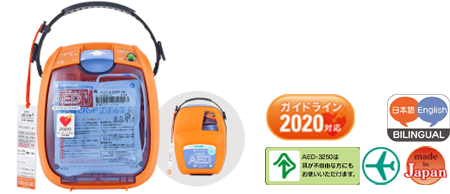
For the benefit of customers and employees from diverse religions, Nihon Kohden has set up a prayer room as well as a place for washing feet before prayers at the Tomioka Production Center.
This hospitality is very well-received by overseas customers who visit the factory.
